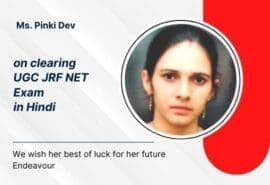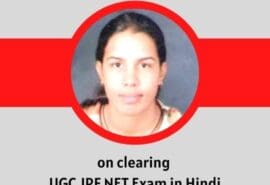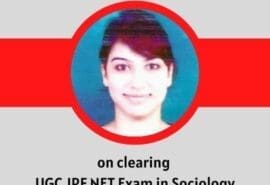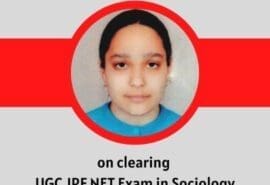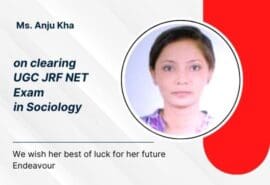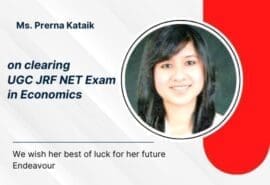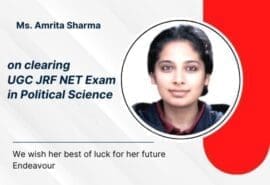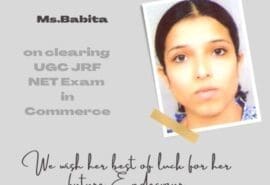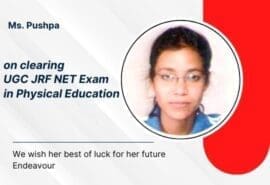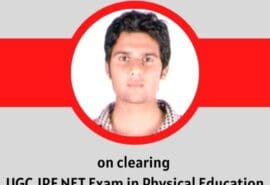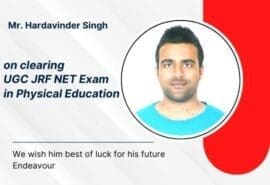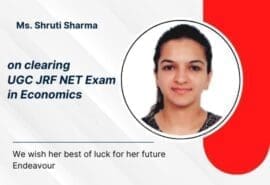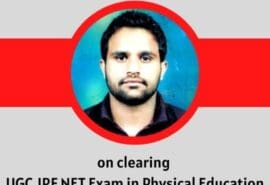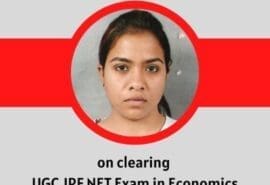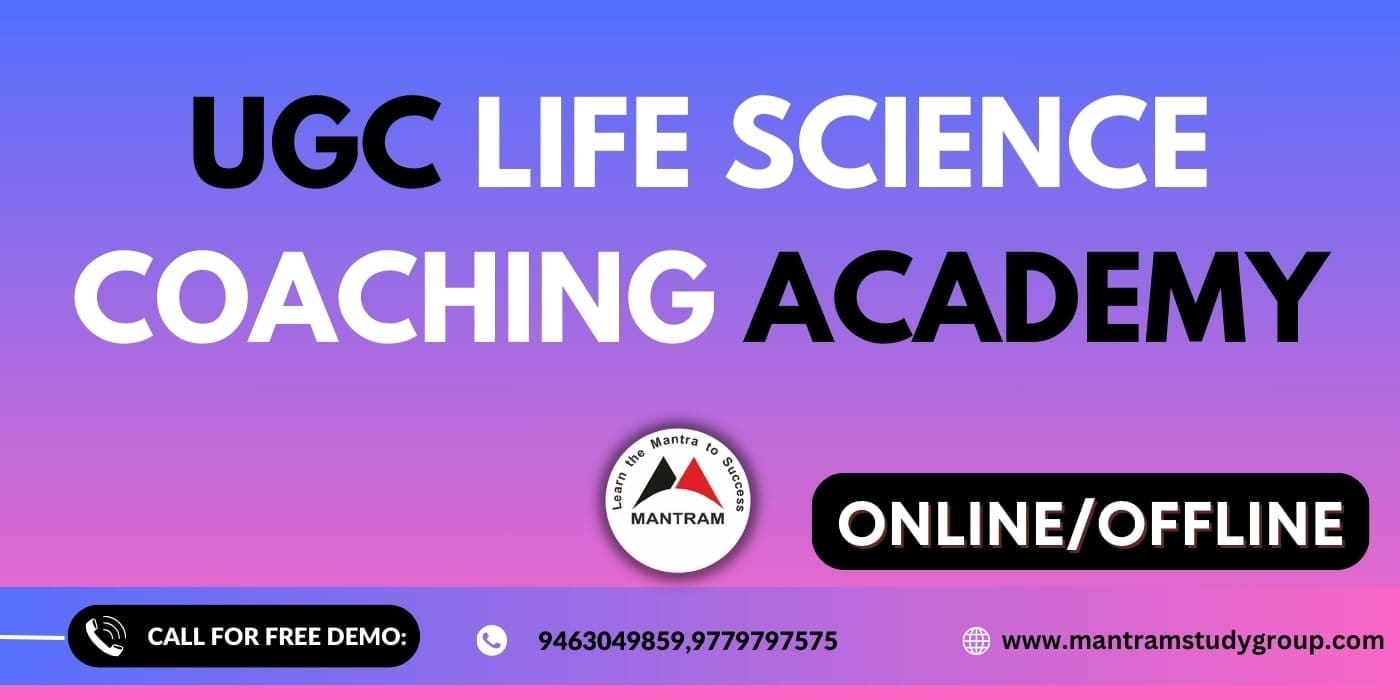
UGC Life Science Coaching Academy
UGC Life Science Coaching Academy
Pursuing a career in life sciences requires in-depth knowledge and rigorous academic preparation. The University Grants Commission National Eligibility Test (UGC NET) for Junior Research Fellowship and eligibility for lectureship is one of the toughest exams aspiring life scientists need to crack.
This is where joining a reputed UGC Life Science coaching academy can make a huge difference.
The right coaching center trains students to overcome academic weaknesses, gain conceptual clarity, and attempt questions within stipulated time limits.
With experienced faculty, updated study material, and test series, UGC NET coaching academies empower students to qualify for the exam on their first attempt.
For Life Science Coaching, contact us at Mantram Study Group, SCO No. 80-81, First Floor, Sector 15-D, Chandigarh (Near Gate No. 2, Panjab University Chandigarh – Contact – 9779797575/ 9463049859)
Here are some key aspects that the best UGC Life Science coaching institutes focus on:
Comprehensive Study Material
The life sciences syllabus for the UGC NET exam is vast, and coaching institutes must provide comprehensive study material. This includes concise notes, summaries, charts, diagrams, practice questions, etc., helping students understand concepts better. Latest materials with weightage to frequently asked topics allow quick revision.
Smaller Batches
Students can identify and overcome preparation gaps with individual attention and focused teaching. Faculty also get to understand each student's strengths and weaknesses. Customized teaching methods can then be adopted for their specific requirements.
Online Lectures
Reputed coaching institutes provide online lectures, doubt-solving sessions, mock tests, etc. This allows flexibility for students who may miss classroom teaching. Online access also aids quick revision of topics from anywhere, anytime.
Rigorous Test Series
Regularly attempting mock tests helps improve subject knowledge, time management, and problem-solving. Tests are conducted at chapter, topic, and full-length levels. Performance analysis and feedback from faculty improve exam readiness.
Results Record
Qualified students' past results and success ratio reflect an institute's credentials. Experienced faculty and robust teaching methodology ensure students are well prepared to crack the exam.
Updated Syllabus
The portions and exam pattern may change over time. Coaching centers need to keep abreast of UGC NET syllabus updates. Teaching needs to focus on the latest syllabus, the weightage of topics, and the format of questions asked.
Qualified Faculty
Institutes must have experienced faculty from a life sciences background. Their in-depth knowledge of the syllabus, exam trends, and expertise in teaching methodology can guide students to qualify effectively.
Choosing a UGC NET Life Science coaching institute with the proper credentials can make a huge difference. Rigorous training, test series, experienced faculty, and updated study material are critical for selecting an academy.
With the exponential growth in life science fields like biotechnology, quality coaching is imperative to crack the UGC NET exam. The proper guidance can help students successfully embark on their academic journey and career in life sciences.
Thanks for visiting our website Mantram Study Group
You may also join Mantram for NORCET Coaching
CHECK OUR OTHER LINKS: -
- UGC JRF NET Economics Exam Preparation Coaching
- UGC JRF NET Sociology Exam Preparation Coaching
- UGC NET Paper I Exam Coaching In Chandigarh
- Best Coaching Institute for Ugc Net Management
- Best UGC NET Commerce Coaching in India
- Sainik School Entrance Coaching
- BSc Agriculture Entrance Coaching Classes
Testimonials
 The dedicated and experienced teachers at Mantram NET Life Science Coaching Institute in Chandigarh make this journey even more rewarding for their students. They go above and beyond to ensure each student receives personalized attention and guidance. Overall, Mantram is committed to empowering students and helping them achieve their goals.
The dedicated and experienced teachers at Mantram NET Life Science Coaching Institute in Chandigarh make this journey even more rewarding for their students. They go above and beyond to ensure each student receives personalized attention and guidance. Overall, Mantram is committed to empowering students and helping them achieve their goals.
 I had a fantastic experience at Mantram Coaching Institute for Life Science in Chandigarh Near PU. Their Delhi-based faculty, comprehensive study materials, and regular mock tests significantly contributed to my success in the competitive exams. The faculty members were highly knowledgeable and experienced, making the learning process engaging and interactive.
I had a fantastic experience at Mantram Coaching Institute for Life Science in Chandigarh Near PU. Their Delhi-based faculty, comprehensive study materials, and regular mock tests significantly contributed to my success in the competitive exams. The faculty members were highly knowledgeable and experienced, making the learning process engaging and interactive.
FAQ
Q. Is UGC NET for life science students?
The UGC NET for life sciences is a significant examination for students and professionals in the field. The Council of Scientific & Industrial Research (CSIR) and the University Grants Commission (UGC) jointly conduct the National Eligibility Test (NET) for various subjects, including Life Sciences, under the banner of CSIR UGC NET.
This exam aims to ensure minimum standards for the entrants in the teaching profession and research. The CSIR NET specifically targets science and engineering graduates, offering them opportunities in Lectureship (LS) and Junior Research Fellowships (JRF).
Q. What is the salary of JRF?
The salary of a Junior Research Fellow (JRF) in India varies widely depending on various factors such as the funding agency, the project, and the institution. As per your information, the salary range for a JRF in India is between ₹1.7 lakhs to ₹5.2 lakhs per annum, with an average annual salary of ₹3.9 lakhs.
These figures are based on the latest salary reports from Junior Research Fellows. They may vary with experience, research domain, and the institution or project's prestige.
Q. Is JRF a government job?
The JRF position is a form of employment, albeit temporary and project-based. It is typically funded by government agencies (like CSIR, UGC, DST, DBT, etc.) for a specific research project or a maximum period of 5 years. During this time, JRFs are expected to work on their research projects, which can also be part of their PhD studies.
Although JRFs are not permanent government employees, they receive stipends from government funds to support their research work. This makes the JRF position a unique blend of employment and academic pursuit, offering a pathway for students to engage in advanced studies and research with financial support from the government.





